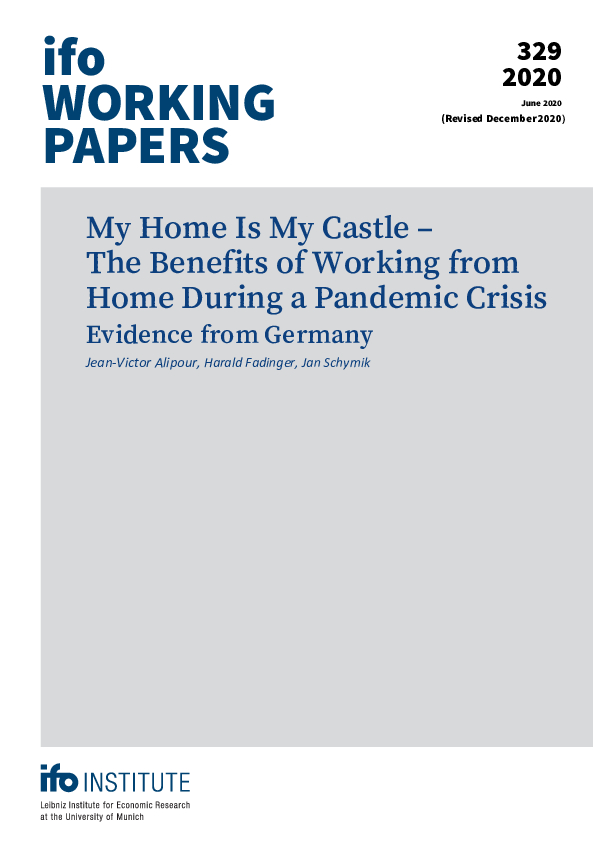My Home Is my Castle – The Benefits of Working from Home During a Pandemic Crisis Evidence from Germany
ifo Institute, Munich, 2020
ifo Working Paper No. 329 (revised version: December 2020)

This paper studies the impact of working from home (WFH) on work relations and public health during the COVID-19 pandemic in Germany. Combining administrative data on SARSCoV-2 infections and short-time work registrations, firm- and employee-level surveys and cell phone tracking data on mobility patterns, we find that working from home effectively shields employees from short-time work, firms from COVID-19 distress and substantially reduces infection risks. Counties with a higher share of teleworkable jobs experience fewer short-time work registrations and less SARS-CoV-2 cases. At the firm level, an exogenous increase in the take-up of WFH reduces the probability of filing for short-time work by up to 72 p.p. and the probability of being very negatively affected by the crisis by up to 75 p.p. Health benefits of WFH appeared mostly in the early stage of the pandemic and became smaller once tight confinement rules were implemented. This effect was driven by lower initial mobility levels in counties with more teleworkable jobs and a subsequent convergence in traffic levels once confinement was implemented. Our results imply that confinement and incentivizing WFH are substitutive policies to slow the spread of the coronavirus.